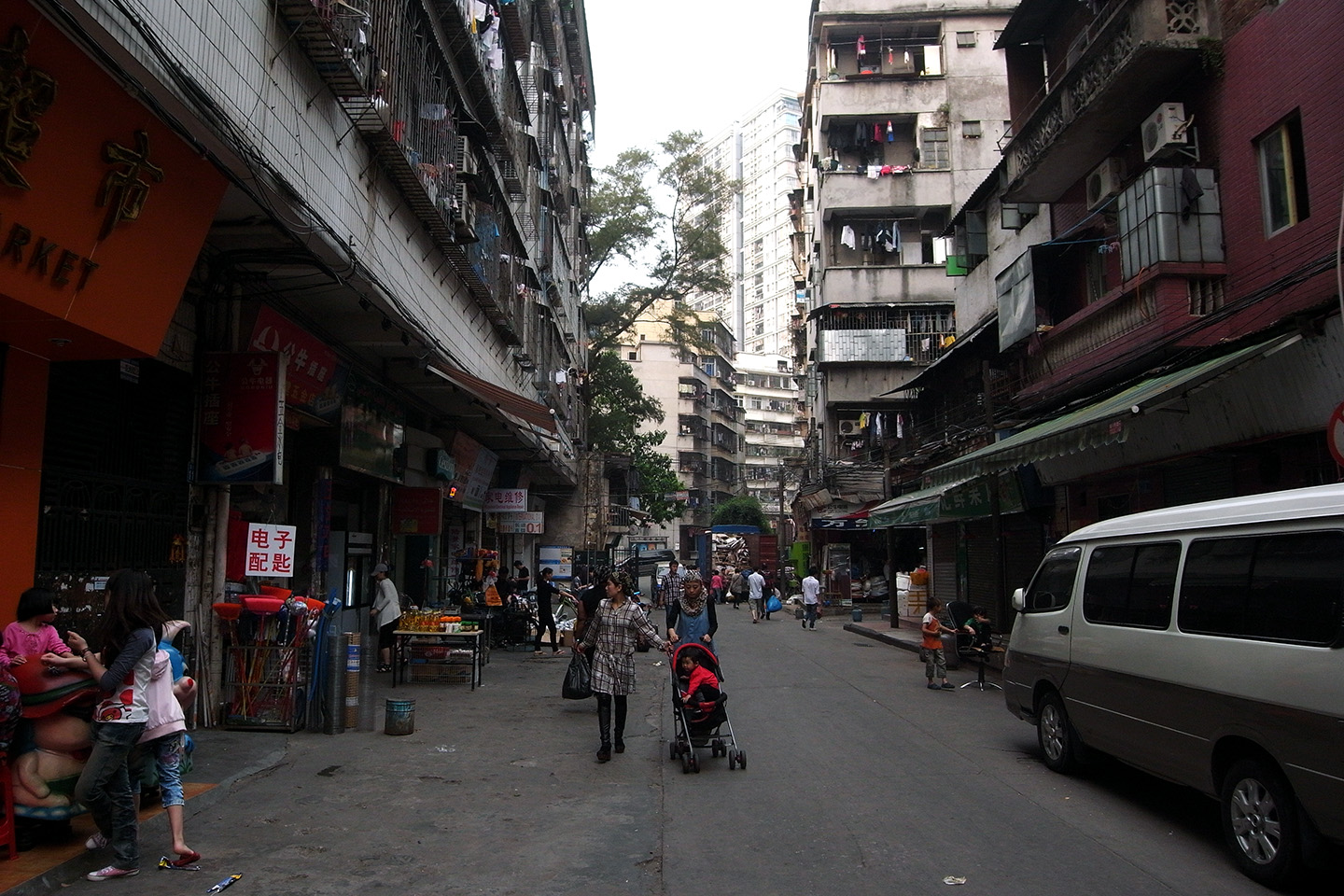Guangzhou’s Little Africa: Xiatangxi Neighborhood
In July 2009 in Guangzhou, the first large foreigner-led demonstration took place in China following the death of a young Nigerian fleeing a police check-up. Under the spotlight of various national media channels, Guangdong’s African community initiated protests in the provincial capital.
Beginning in the 1990s, the largest African community in East Asia established itself in the northern reaches of Xiatangxi (下塘西). In 2013, about 20 000 African residents leaved there. Following China’s economic opening-up and Guangzhou’s emerging role as a major Chinese import-export trading center, African businessmen and entrepreneurs flocked to China, establishing their trading and living base around the first Nigerian commercial export market, Canaan, itself situated right next to the Chinese Muslim Hui and Uyghur quarters of Guangzhou.
A need for solidarity – whether cultural, religious, ethnic or commercial – felt by most Africans upon arriving in an unfamiliar and sometimes hostile Chinese environment is likely what led to the establishment of Xiatangxi’s “ethnic enclave”. Among other features, the community is characterized by a lack of economic resources, especially in comparison to other foreign communities in contemporary China. It is therefore often difficult for African immigrants to find the funds necessary to renew their visas, which means they must annually return to Africa. As a result, the majority of Xiatangxi’s African population often opts to overstay their visas illegally, while attempting to earn enough money through their businesses to turn the whole trip into a financially beneficial endeavor. In order to limit the risks, a mutual assistance system has developed to protect illegal over-staying inhabitants, allowing them to restrict their interactions solely to members of the community and thus reduce the risk of heavy fines and deportation. Frequent police raids, however, have contributed to an overall tense atmosphere now sadly typical of Xiatangxi.
Xiatangxi is not, however, culturally homogenous, comprised instead of a mixture of African communities, both Muslims and Christian, united in their common pursuit of wealth and prosperity in China. The area also contributes significantly to African-Chinese relations, as both parties may convene there for business purposes. As for non-commercial relations between new immigrants and Cantonese natives, these were first established here in religious venues, sometimes leading to mixed families. Some Africans have also advanced to high-ranking positions here, with social and economic reaches and influence that far exceed the boundaries of Xiatangxi. For example, Ojukwu Emma, head of the Nigerian Association of Guangzhou, was recognized by the embassy for his support of fellow countrymen and his mediating role in Sino-Nigerian disputes in the greater Guangzhou area. Others, like Dibaocha, become local artists and celebrities, integrating Chinese elements in their work while also promoting their own language and culture.
While the African population only accounts for around 50% of the neighborhood’s inhabitants, the community and its influence are still readily perceptible. Signs are in Chinese, English and/or French, while conversations heard here often mix Mandarin and Cantonese with English, Igbo or Swahili. Stalls offer mostly halal food, while sharing the streets with Chinese vendors eager to offer their products for export. African restaurants are discreet but can nevertheless still be found, and street food stalls have become places of Chinese-African intermingling. Boubous color the streets and some Chinese residents now prefer to patronize African businesses, taking advantage of the services and expertise readily available in the area (tailoring, for instance, is one such popular trade in the area), practicing their English in the process and contributing to the neighborhood’s cultural and linguistic hybridization.
The establishment of an African quarter in Guangzhou therefore offers one of the first critical examples of issues of immigration and the integration or assimilation of large foreign communities in contemporary China. Developments here further shed light on a new social and cultural reality symptomatic of a newly globalized China and its new international role.
-
2018/02/22

-
Guangzhou

-
Modu Team


the other map
Explore arrow
arrow
loading map - please wait...




